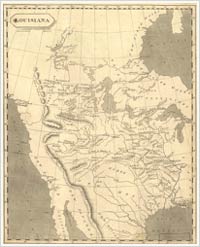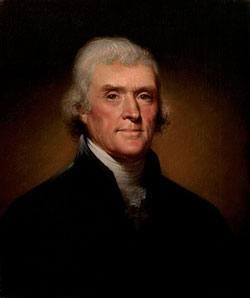Which land deal between the US and France was put into play today in 1804?
 March 26, 1804 — Congress ordered the removal of Indians east of Mississippi to Louisiana in order to organize the the Territory of Orleans as part of the Louisiana Purchase.
March 26, 1804 — Congress ordered the removal of Indians east of Mississippi to Louisiana in order to organize the the Territory of Orleans as part of the Louisiana Purchase.
The 1803 land deal between the United States and France enabled the U.S. to acquire approximately 827,000 square miles of land west of the Mississippi River for $15 million.
The Louisiana territory included land from two Canadian provinces (Alberta and Saskatchewan) and 15 present U.S. states — Arkansas, Missouri, Iowa, Oklahoma, Kansas, and Nebraska; the portion of Minnesota west of the Mississippi River; a large portion of North Dakota; a large portion of South Dakota; the northeastern section of New Mexico; the northern portion of Texas; the area of Montana, Wyoming, and Colorado east of the Continental Divide; Louisiana west of the Mississippi River (plus New Orleans).
From 1699-1762: The Kingdom of France controlled the Louisiana territory until it was ceded to Spain. In 1800, Napoleon hoped to re-establish an empire in North America, and regained ownership of Louisiana. President Thomas Jefferson originally sought to purchase only the port city of New Orleans and its adjacent coastal lands, but quickly accepted the bargain.
Before the purchase was finalized, the decision faced Federalist Party opposition; they argued that it was unconstitutional to acquire any territory. Jefferson agreed that the U.S. Constitution did not contain explicit provisions for acquiring territory, but he did have full treaty power and that was enough.
Sources
Words of Wisdom
[T]his little event, of France possessing herself of Louisiana, ... is the embryo of a tornado which will burst on the countries on both shores of the Atlantic and involve in it’s effects their highest destinies.




